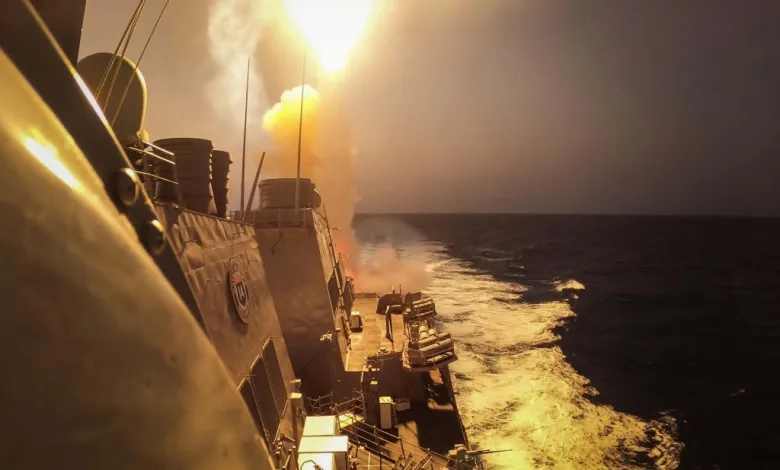NYN | Reports and analyses
The Italian Institute for International Political Studies (ISPI) has stated that the crisis of Western deterrence in the Red Sea is increasingly intensifying, as security challenges have escalated following naval attacks by Yemen’s government forces in support of Gaza since October 2023. Despite efforts by multinational naval coalitions, including Western military operations, these measures have failed to reduce the Houthis’ offensive capabilities.
In a detailed analysis published on its website, ISPI highlighted that the Houthis targeted Western maritime activity in the Red Sea in solidarity with Gaza after the events of October 7, and normal maritime movement has not yet resumed. Despite U.S.-British and European alliances, such as Operation “Aspides,” shipping activity remains more than half of pre-crisis levels.
The report pointed out that “the shifting balance of power in the Red Sea since the early 21st century has led to new equilibria in the global system.”
It added that the events of October 7 and the war between Israel and Hamas significantly escalated competition in the Red Sea, with continued Houthi attacks on shipping resulting in a substantial decline in maritime traffic.
The report emphasized that Western countries, whose ships and naval fleets have been targeted in the Red Sea, have been unable to stop Houthi threats. These nations are also facing difficulties in assessing the multi-dimensional nature of this threat, amid the absence of an effective strategy to deter the Houthis so far.
The report noted that the Houthis’ use of a variety of weapons, including anti-ship missiles and drones, has further complicated the situation, especially as the geographic danger zone has expanded to include the Gulf of Aden.
Additionally, military initiatives launched by Western nations, such as the U.S.-led “Prosperity Guardian” mission and the European Union’s “Aspides” operation, have not succeeded in weakening the Houthis’ offensive capabilities since January 2024, underlining the weakness of Western deterrence.
The report argued that “the traditional concept of deterrence, developed by states against other states, is now facing new challenges with the Houthis as a non-state actor.” It also noted that the Houthis’ threats include missiles, drones, unmanned vessels, and even acts of piracy, which have disrupted the Western defensive system.
Furthermore, the report discusses geopolitical shifts in the Red Sea, where the influence of Iran, Russia, and China is growing, complicating the situation for Western countries. These developments have led to new dynamics in international relations, putting Western nations in a difficult position as they face ongoing maritime threats.
The report calls for a “re-evaluation of Western deterrence strategies to address non-state armed actors like the Houthis.”
